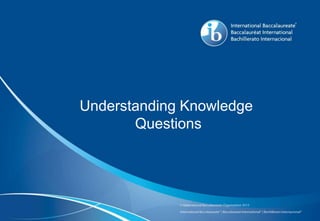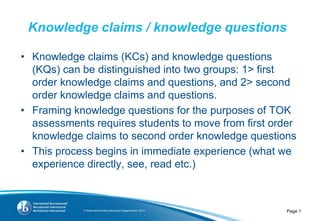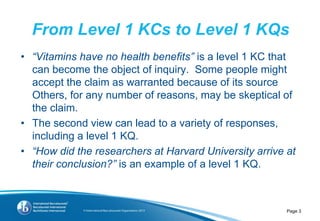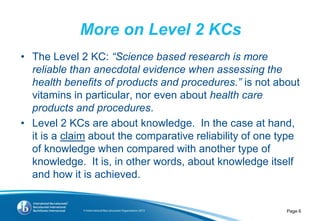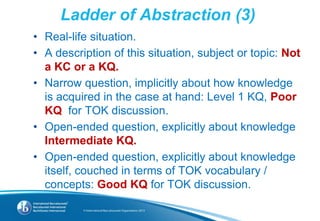This document discusses the differences between first order and second order knowledge claims and questions. It explains that first order knowledge claims and questions are rooted in direct experience, while second order questions and claims address knowledge itself. The document uses examples to illustrate how a knowledge claim derived from experience can lead to first order questions, and then to second order claims and questions that are more abstract and address the nature of knowledge. It provides a "ladder of abstraction" image to depict how knowledge questions can evolve from concrete to more conceptual levels by moving from specific subjects to considerations about knowledge itself.
